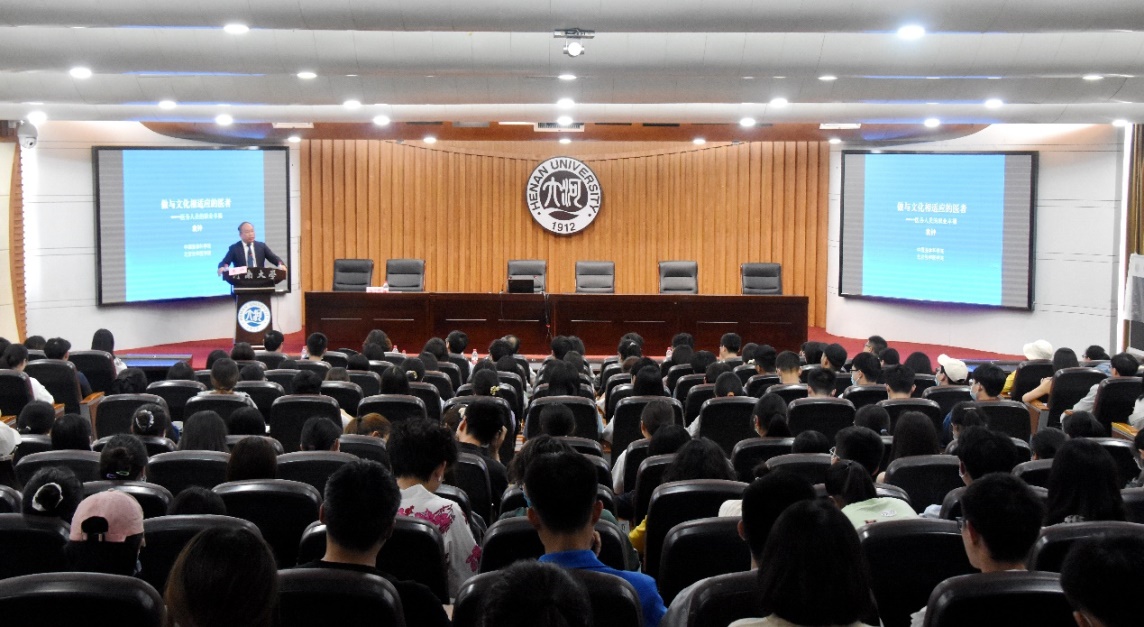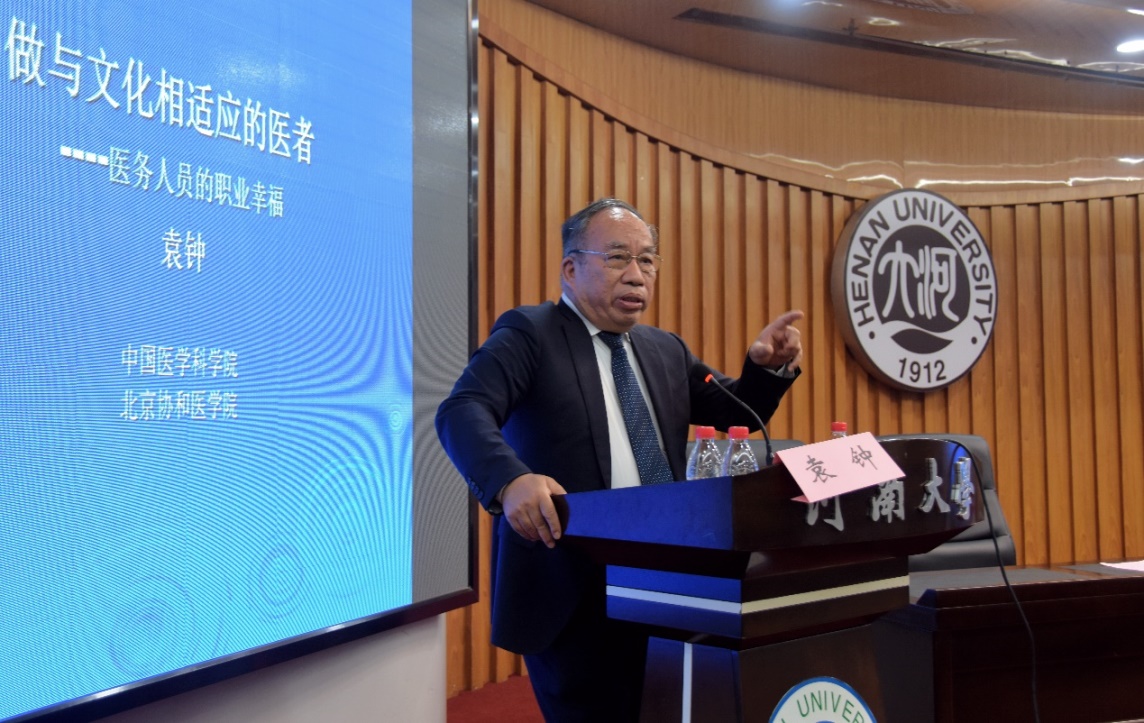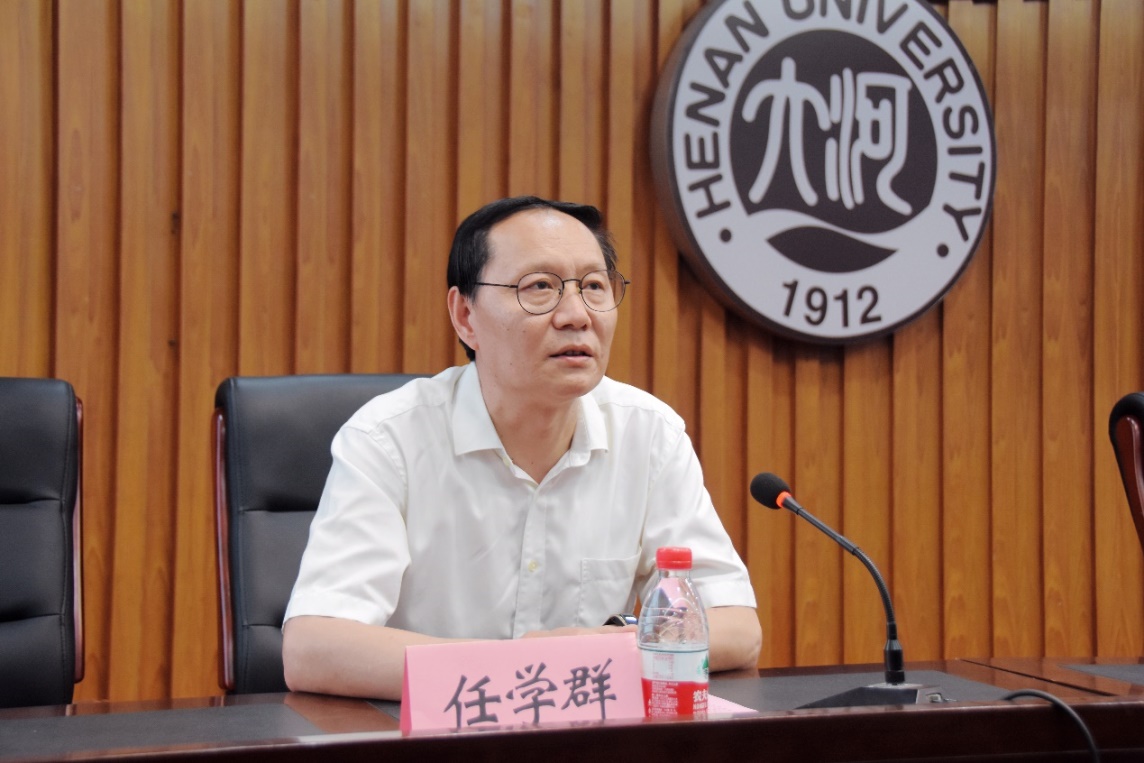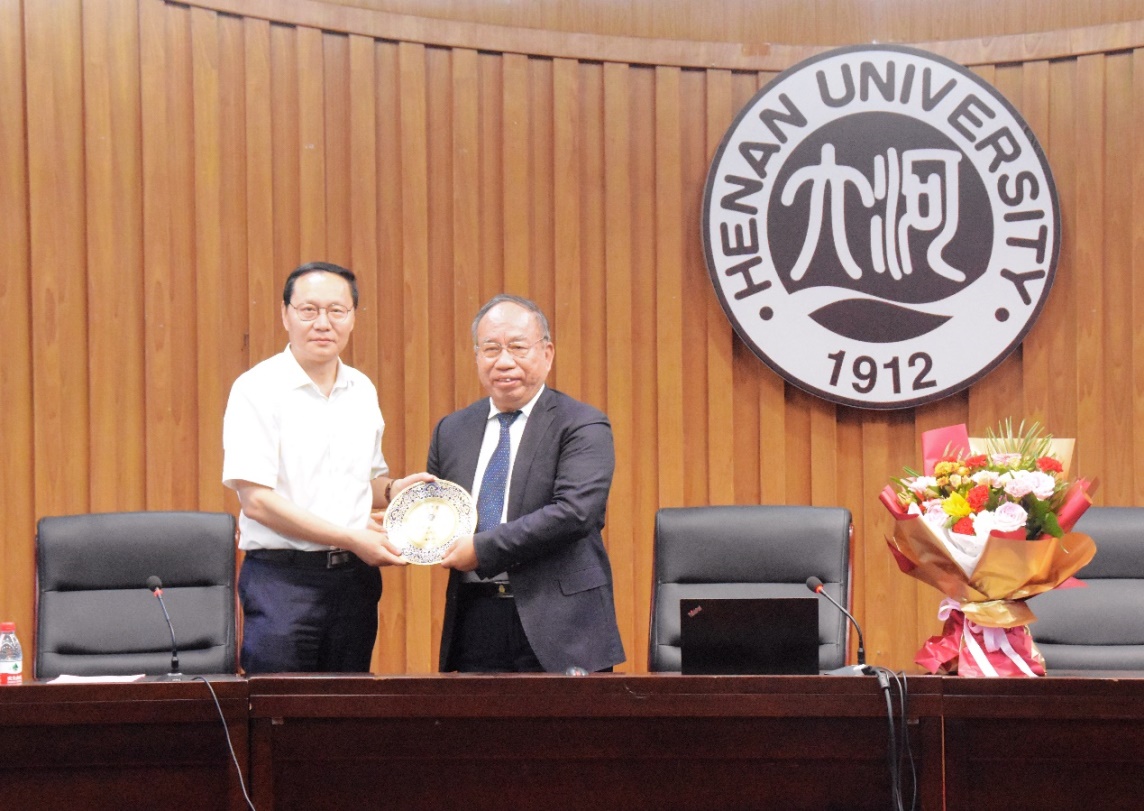
In the afternoon of May 8, Professor Yuan Zhong, a renowned expert in medical humanities who is currently Executive Deputy Director of the Professional Committee for Medical Humanities under Chinese Medical Doctor Association (CMDA) and the former Director of the Peking Union Medical College Press, gave a wonderful lecture entitled "Being a Culturally Competent Doctor" at the Lecture Hall 249 in the Administration Building of HENU’s Jinming campus. Around 300 teachers and students from Henan Medical School were present, listening to the lecture. Ren Xuequn, Executive Vice-President of Henan Medical School took the chair.
Speaking on how to behave, Prof. Yuan said that a good young man should always think of others more than himself. "Learning to be human" means that human should have knowledge, and more importantly conscience. Knowledge is power, while conscience is direction. He hoped that students would help people rather than hurting them, learn to do things with a kind heart, learn to behave, and "learn to be human". When talking about how to build a harmonious doctor-patient relationship, Yuan proposed treating patients as relatives, adding that doctors should provide both technical and non-technical help to patients. Doctors, so warm and noble, should not be concerned with gains and losses. Finally, Yuan stressed that as a science based on human beings and directly serving them, medicine attaches more importance to humanistic care than any other science, therefore requiring its practitioners to be more humanistic. He hoped that students can not only learn technical skills, but also develop their own noble humanistic sentiments and establish the value of "medicine is a benevolent art and the benevolent are happy". He encouraged students to grow into "well-educated" doctors by setting up dreams to save lives and learning to be human.

With remarks alternately sarcastic and witty, Yuan’s lecture is sobering and full of clever insights. The audience did get something out of it.

Ren Xuequn, Executive Vice President of Henan Medical School, concluded the meeting by saying that he hoped all students and faculty members can gain a better understanding of life and plan their life in a better way through what Prof. Yuan Zhong had shared to avoid detours in the future as much as possible. He hoped that this in-depth trip of medical humanities can help teachers and students of Henan Medical School to enhance their humanistic spirit to be doctors with conscience and humanistic feelings, and be good and experienced doctors with love and professional knowledge and skills.

After the lecture, Ren Xuequn presented Prof. Yuan with a special bronze plate of “Mingde Medical Lecture”.
[Yuan Zhong’s Profile]
Yuan Zhong, a Doctor of Medicine (M.D.) specializing in the history of Chinese medicine, with the research direction of medicine and philosophy, is a Professor of Editorship in the Chinese Academy of Medical Sciences (CAMS).
He used to be Assistant to the President of Peking Union Medical College and Director and Editor-in-Chief of Peking Union Medical College Press and currently works as a member of the Expert Committee on Life Ethics of the National Health Commission, Executive Deputy Director and Secretary-General of the Professional Committee for Medical Humanities under Chinese Medical Doctor Association (CMDA), and a visiting researcher at the Palace Museum in Beijing. He has long been engaged in research on the comparative history of Traditional Chinese and Western medicine, medicine and philosophy, religious studies and medical ethics. He has won the second prize of the National Science and Technology Progress Award and the National Book Award and has been awarded the honorary title of the National Advanced Science Popularization Worker. He has published such papers as “A Preliminary Exploration of the Origin of Meridian and Collateral Theory in Traditional Chinese Medicine”, “The Reproductive Culture and Yin and Yang Theory of Traditional Chinese Medicine in Ancient China”, and “Language Confusion in the Study of Traditional Chinese and Western Medicine.” He has co-edited the books including “Dictionary of Traditional Chinese Medicine”, “Medical Dialectics”, and “Medical Humanities Series. In addition, he also works for the magazines - Medicine and Philosophy and Chinese Medical Humanities as an associate editor.